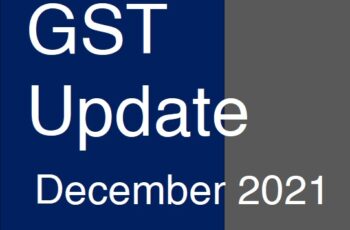Amidst the outbreak of novel corona virus (COVID-19), the number of shoppers that are visiting shops, for reasons other than to shop for food and other essential items, have significantly reduced. The Government of India has announced a nationwide lock-down on March 24th to limit movement of people. Consequently, commercial, industrial and retail concerns including those selling non-essential items, restaurants and many others have been severely impacted. Many establishments have already been forced to lay-off their employees and shut down their operations. The Ministry of Home Affairs vide its order dated March 29, 2020, in exercise of its powers conferred under Section 10(2)(l) of the Disaster Management Act, 2005, directed all State/Union Territory Governments and State/Union Territory Authorities to take necessary actions and issue necessary orders, inter alia, for waiver of rent for workers by landlords for a period of one month. Many State Governments are yet to issue any order/notification in this respect.
Given this situation, the Kerala Building Owners have decided to waive one month rent to soften the impact of COVID-19 on their tenants said a recent news report. Such relaxations are expected to be given in all the States depending on the exigence. Waiver of rent allows the tenant to continue occupying the leased premises for a certain period of time without paying any rent.
Force majeure
Many commercial rent/lease agreement explicitly provide for ‘Force majeure’ clause which relieves a party from performance of its contractual obligations, without any consequential breach of the contract, provided such performance is adversely impacted by events outside the control of an affected party such as act of God, natural disaster, war, strike, lockout, epidemic, Government orders, etc. As ‘Force Majeure’ is a contractual right, the express wordings of the clause has to be carefully assessed and the tenant/lessee cannot, as a matter of right, invoke non-payment due to a Force Majeure event in the absence of a supporting clause and/or a specific rent waiver agreed under the contract.
If the rent/lease agreement provide for stoppage of rent or suspension of all obligations during a Force Majeure period without any qualifications or riders, then the tenant/lessee should immediately exercise its right by issuing a letter to the landlord/ lessor invoking Force Majeure event and intimating cessation of its obligation to pay lease rental during the period the Force Majeure event continues.
GST on rental income
An entity is liable to pay GST at 18% on renting of commercial property, if aggregate turnover of such entity exceeds Rs. 20 lakhs during a financial year. When rent is waived by the landlord, care should be taken to document the rent waiver in such a way as to avoid any unwelcome surprises from the GST authorities. When the rent is waived by the landlord for particular period, the initial inference is that it is letting out of commercial premises without consideration and hence it outside the scope of supply and the landlord need not raise any invoice for that period.
However, Clause (a) of section 7(1) of CGST Act reads as follows:
(a) all forms of supply of goods or services or both such as sale, transfer, barter, exchange, licence, rental, lease or disposal made or agreed to be made for a consideration by a person in the course or furtherance of business;
(emphasis supplied)
Generally, when a commercial premises is let out, the landlord and the tenant enters into a rental or lease agreement specifying the terms and conditions, period of lease/ let out, rent payable, etc. Therefore, renting of commercial premises under a rent agreement is not outside the scope of supply u/s 7 as the service itself is ‘agreed to be made for a consideration’, even though rent is waived.
Continuous supply of service
In the above context, it is important to understand the concept of continuous supply of service in GST. According to Section 2 (33) of CGST Act, 2017,
“continuous supply of services” means a supply of services which is provided, or agreed to be provided, continuously or on recurrent basis, under a contract, for a period exceeding 3 months with periodic payment obligations and includes supply of such services as the Government may, subject to such conditions, as it may, by notification, specify. When commercial premise is let out for a particular period (usually longer than 3 months) for a progressive or periodic payment of rent, it is a continuous supply of service within the meaning of section 2(33).
As per section 31 of the CGST Act, since the due date of payment is ascertainable, invoice has to be issued on or before the due date of payment. Section 13(2) provides that the time of supply of services shall be the earliest of date of issue of invoice by the supplier, if the invoice is issued as per section 31 or the date of receipt of payment. In case the invoice is not issued as per section 31, then time of supply shall be earliest of the date of provision of service or the date of receipt of payment.
Since the landlord is providing continuous supply of service, he has to raise an tax invoice according to section 31 even though rent will not received. However, landlord will not be willing to pay GST on such rent. In such cases, he has two alternative ways –
-
First option is to issue a credit note to the tenant:
According to section 34(1), where one or more tax invoices have been issued for supply of any goods or services or both and
a. the taxable value in that tax invoice is found to exceed the taxable value, or
b. tax charged in that tax invoice is found to exceed tax payable in respect of such supply, or
c. where the goods supplied are returned by the recipient, or
d. where goods or services or both supplied are found to be deficient,
the registered person, who has supplied such goods or services or both, may issue to the recipient one or more credit notes for supplies made in a financial year containing such particulars as may be prescribed.
When the rent is waived for a particular period, the taxable value has been reduced as compared to what was originally agreed in the rent agreement. Since tax invoice (issued as per section 31) is issued for the rent originally agreed, it exceeds the taxable value and therefore, a credit note can be issued by the landlord to the tenant for amount of rent waived and output tax thereon.
Both the said invoice and credit note must be duly accounted and declared in GSTR-1 by the landlord. Since there will not be taxable amount, no output tax will be liable to be paid by the landlord in GSTR-3B.
-
Alternatively, the landlord can also give discount on the invoice itself, if the rent is waived partially:
Accordingly, the net taxable value as shown the invoice has to be declared in the GSTR-1 and corresponding output tax has to be paid in GSTR-3B. In the opinion of the author, in both the alternatives, there will not be any reversal of input tax credit involved in the hands of landlord in the absence of such specific requirement u/s 17 of CGST Act.
Impact on the tenant
A tenant, if he is registered, would be normally taking the input tax credit of GST paid on rent on the basis of periodic tax invoice raised by the landlord subject to compliance with other provisions of section 16. When the landlord issues a credit note, the tenant has to reverse the corresponding input tax credit on the credit note. If the rent is waived partially by way of discount in the invoice, the tenant can take ITC on the taxable value in the invoice subject to fulfilment of other conditions u/s 16.
Documentation
The documentation for the rent waiver is very important both for the tenant as well as the landlord both from a contractual or commercial perspective and also from GST standpoint. In case the rent agreement provides for a force majeure clause, the tenant has to send a letter to the landlord to exercise his right. From GST perspective, in case of any scrutiny/ audit/ inquiry/ investigation in future, the landlord must be in a position to substantiate that rent was actually waived. A letter from the tenant, either invoking the force majeure clause or in case there is no such clause, a request for waiver would be sufficient documentation.
Conclusion
Keeping in view of the situation, it would be very useful if the Government comes out with a clarification on the treatment of rent waiver to clarify the doubts relating to compliance requirement and ensure uniformity in implementation of provisions. CBIC has already issued Circular No. 137/07/2020-GST dt 13th April 2020 with regard to clarification of refund of advances, return of goods, compliance of TDS, refund applications, etc. Similar circular is expected in the case of rent waiver also.









